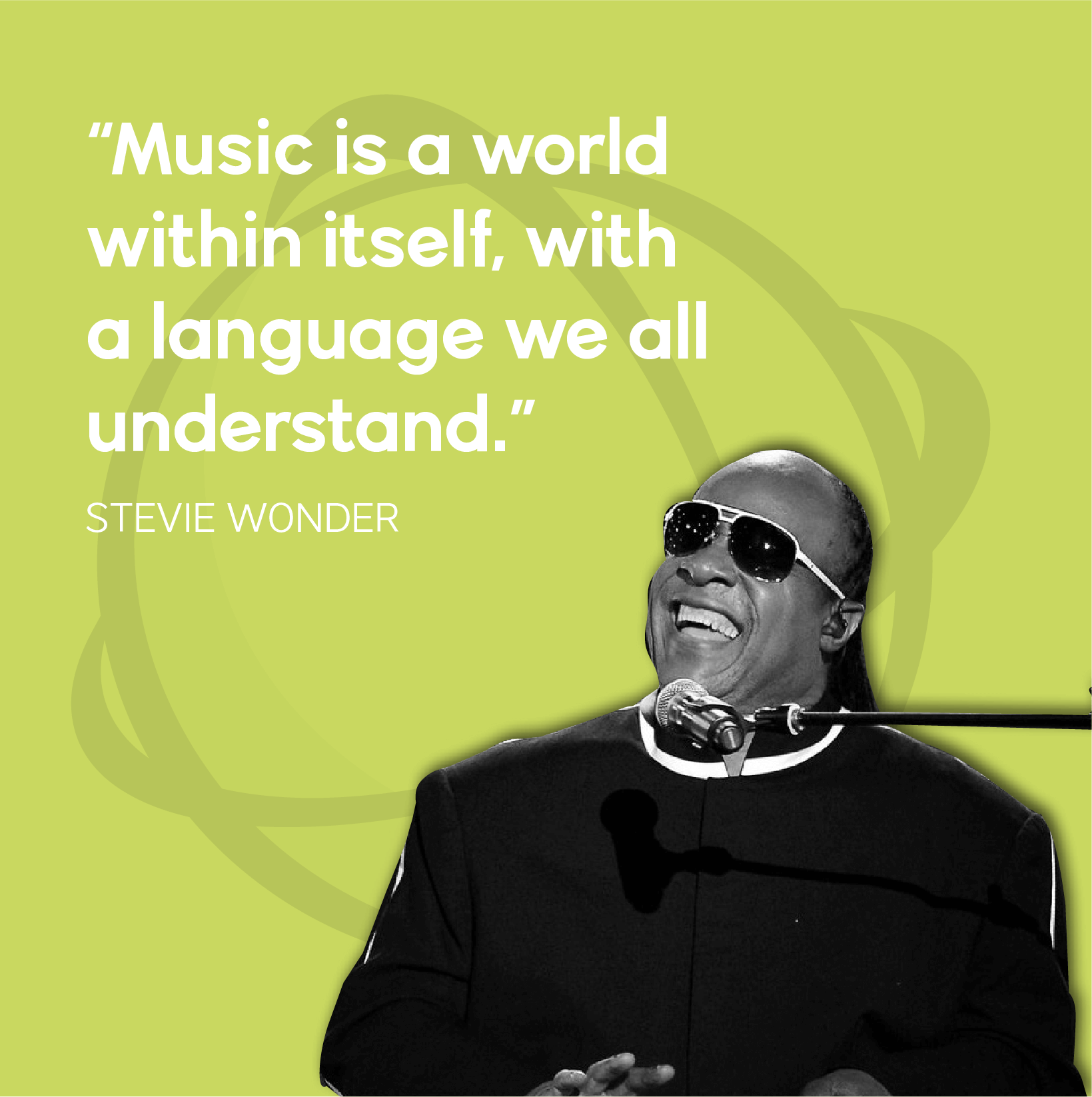Language learning, music and memory
WORLD MUSIC DAY
To celebrate World Music Day – and as follow up to last week’s blog “But everyone speaks English…” – we’ve been thinking about how musical exposure can have a positive effect on language learning.
Why is it that people across the globe generally have at least some command of the English language? *lightbulb moment!* MUSIC! Imagine my surprise on a trip to remote Chile (where no one spoke a word of English) when I heard a local shopkeeper belting out the lyrics to Queen’s Greatest Hits! Bizarre!

MUSIC AND LANGUAGE LEARNING
Could music, with its catchy melodies and repetitive rhythms, really help us learn a language?
Oxford Brookes University (2009) ran a study in an English comprehensive school, whereby music was used as a teaching tool for the French tense, the passé compose. According to the results, integrating musical – and specifically singing activities – into Modern Foreign Language lessons seemed to accelerate pupils’ learning of French vocabulary. The repetitive act of rehearsing and performing the songs helped students to remember the important words, and the engaging musical element was found to be enjoyable, making pupils more receptive to learning.
MUSIC AND MEMORY
There has been huge emphasis in the news recently on Alzheimer sufferers and the power of music helping to activate memory recall, heighten comfort and decrease anxiety (Elsevier Ltd, 2004). Patients have been known to have very limited capacity to communicate, but on hearing a song from their youth are able to sing the words with total conviction.
INTEGRATE MUSIC IN YOUR LEARNING
If you’re in the early stages of learning a language, we STRONGLY encourage you to integrate music in your studies. The best way to learn a language is to speak it. The best way to learn a song is to sing it! The repeated act of singing means certain phrases and words should stick in your brain. It may also help with your general pronunciation and with putting words into context. Top tip… always check a translation of the lyrics to avoid using accidental expletives or singing about inappropriate topics! Latin American songs in particular can be a little machista in their topics. You have been warned!
QUICK TIP FOR LANGUAGE LEARNERS!
So put your dictionary to one side, log into your Spotify account and indulge in some fun and effective self-study! The key is finding songs you like… Pick a genre you already enjoy listening to, then search for it in your target language. (YouTube is an invaluable resource as you can follow the lyrics!)
It’s never too late to start learning. Start integrating music into your regular study routine – you may not feel like you’re studying at all!
********************
Atlas Translations take care of every aspect of your translation. From advice and discussion to a clear and itemised quotation, through to delivery in the format you need. Dedicated, experienced project managers guide you through the process. Telephone calls answered. Emails replied to. Humans. People. Experts all the way.
As a leading language services provider, Atlas Translations has experience working in many sectors, translating and localizing digital content from Apps to websites.
Call us on 01727 812 725 to let us know what you need and we can let you know straightaway if we can help. Alternatively, send us an email to team@atlas-translations.co.uk . We respond quickly to all enquiries. Use the little icons here on the website for live chat (it really is one of us), request a call back within 27 seconds or use our price calculator for an instant quote!














